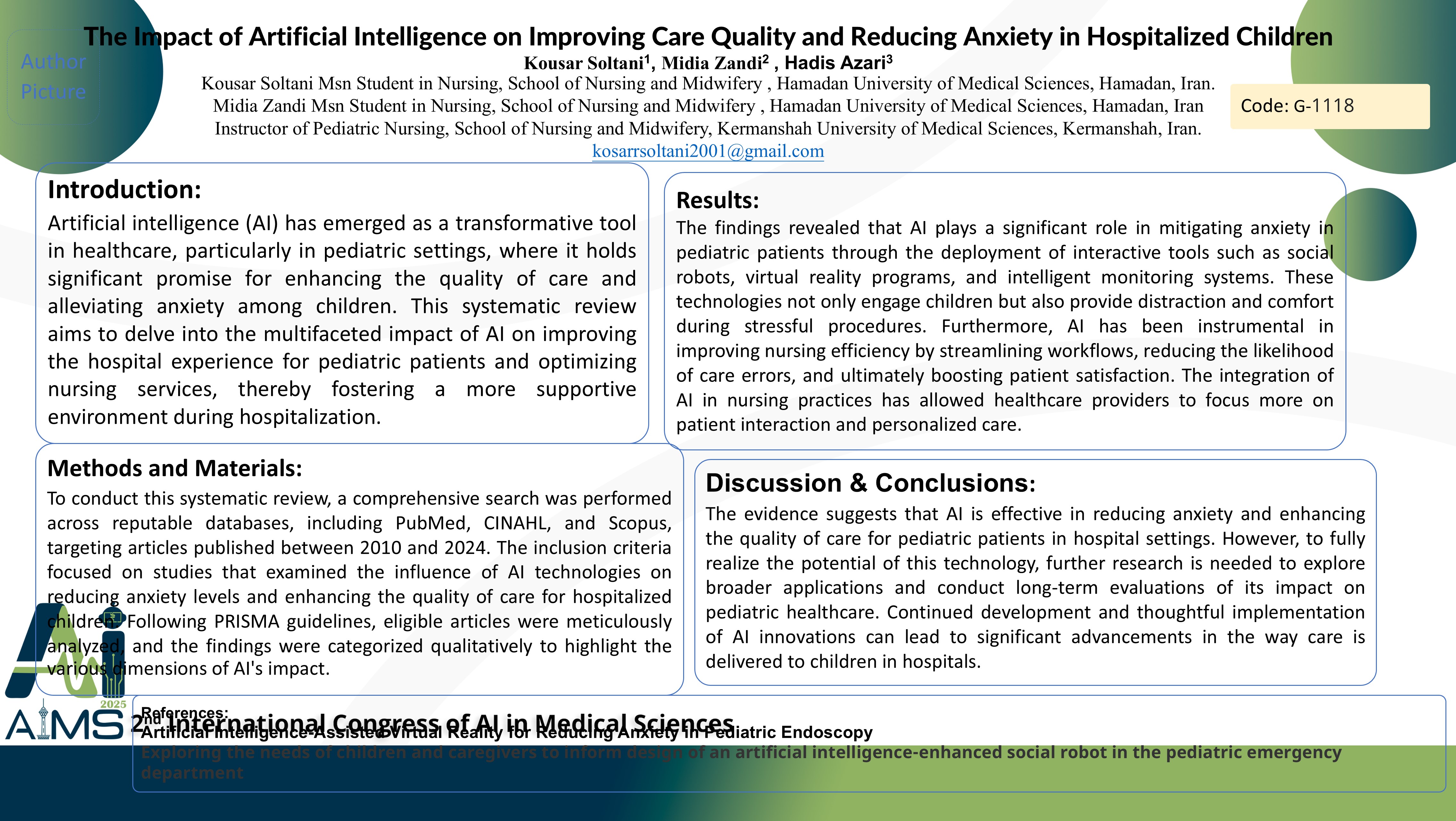The Impact of Artificial Intelligence on Improving Care Quality and Reducing Anxiety in Hospitalized Children
Code: G-1118
Authors: کوثر سلطانی *, Midya Zandi ℗, Hadis Azari
Schedule: Not Scheduled!
Tag: Intelligent Virtual Assistant
Download: Download Poster
Abstract:
Abstract
Introduction: Artificial intelligence (AI) has emerged as a transformative tool in healthcare, particularly in pediatric settings, where it holds significant promise for enhancing the quality of care and alleviating anxiety among children. This systematic review aims to delve into the multifaceted impact of AI on improving the hospital experience for pediatric patients and optimizing nursing services, thereby fostering a more supportive environment during hospitalization. Methods: To conduct this systematic review, a comprehensive search was performed across reputable databases, including PubMed, CINAHL, and Scopus, targeting articles published between 2010 and 2024. The inclusion criteria focused on studies that examined the influence of AI technologies on reducing anxiety levels and enhancing the quality of care for hospitalized children. Following PRISMA guidelines, eligible articles were meticulously analyzed, and the findings were categorized qualitatively to highlight the various dimensions of AI's impact. Results: The findings revealed that AI plays a significant role in mitigating anxiety in pediatric patients through the deployment of interactive tools such as social robots, virtual reality programs, and intelligent monitoring systems. These technologies not only engage children but also provide distraction and comfort during stressful procedures. Furthermore, AI has been instrumental in improving nursing efficiency by streamlining workflows, reducing the likelihood of care errors, and ultimately boosting patient satisfaction. The integration of AI in nursing practices has allowed healthcare providers to focus more on patient interaction and personalized care. Conclusion: The evidence suggests that AI is effective in reducing anxiety and enhancing the quality of care for pediatric patients in hospital settings. However, to fully realize the potential of this technology, further research is needed to explore broader applications and conduct long-term evaluations of its impact on pediatric healthcare. Continued development and thoughtful implementation of AI innovations can lead to significant advancements in the way care is delivered to children in hospitals.
Keywords
Artificial Intelligence, Anxiety Reduction, Pediatric Health
